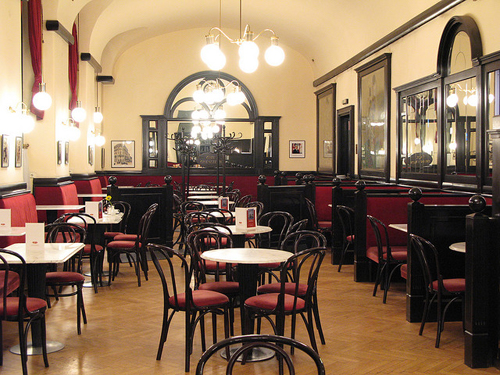On the facade of the wonderful, cubic-style building designed by Joseph Maria Olbrich, which served in 1898 as the headquarters of the activities and exhibitions of the Viennese Secession group , the famous inscription can still be read “ To every time its art, to each art its freedom,” – an original motto which asserted the need for new forms of art to go with the new and revolutionary times.

Because not only Viena (in spite of the stubborn refusal of the historical Ringstrasse buildings), but the whole world was changing – all forms of knowledge, technology, psychology, and daily life were taking on new paradigms which were dramatically different to anything that had gone before.
Religion had declined, psychology and sociology were opening up rapidly, the advances of science broke records almost daily, establishing brand new frontiers. At the same time, a new type of anti-Newton physics was developing which was interested in the atom and its particles, bringing powerful new conclusions and ways of thinking to the field.
In matters of the human mind, this was also the era of what has been called the “philosophy of suspicion,” supported by three great pillars; Nietzsche, Freud, and Marx (for politics was inevitably involved) In any case, language couldn’t go unmarked, and so the eternal debate about the relation between words and things reemerged.
This is the context in which Viennese writer Hugo Von Hofmannsthal – always interested by the effect of changing social climates on language – published, in 1902, one of the most beautiful, disturbing – and probably influential – books of the 20th century. The celebrated Letter from Lord Chandos is a small book of barely 30 pages, in which the narrator is the Lord Chandos of the title, a supposed English aristocrat writer from the end of the Tudor age (parallels have been drawn between this historical context and Hofmannsthal’s own finis Austriae, and their common loss of cultural reference points.) Chandos pens a letter to Francis Bacon announcing that this will be his last piece of writing because he has given up on language as a mode of description. It is a fascinating articulation of the crisis of confidence and growing mistrust in the nature of literary expression at the end of the 19th century. A crisis that would be the germ for much of the best subsequent literature, which is still today preoccupied with the use of language to speak for the silence of things.
?
 Paul Oilzum
Paul Oilzum
When Lord Chandos abandoned writing, it was because of effects of the “flood” of life. Enjoy life to the maximum and rent one of the apartments in Viena.
 Translated by: Poppy
Translated by: Poppy
Contact Me

 English
English
